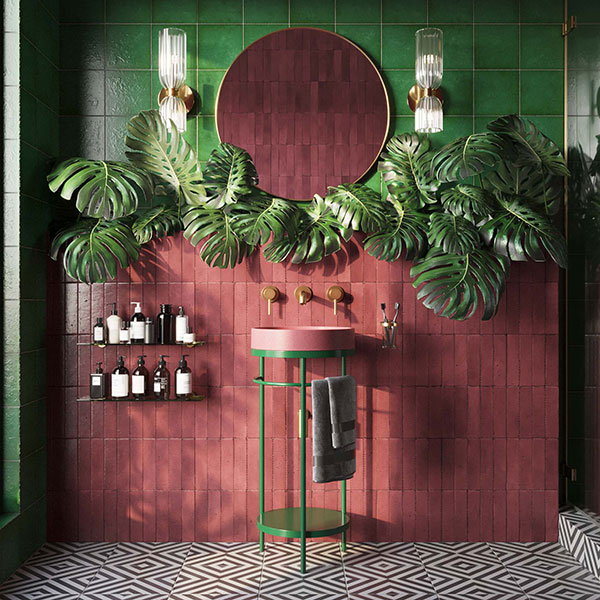
Eco-Friendly Choices: Why Concrete is a Sustainable Sink Material
Sustainability is more than just a passing trend—it’s a responsibility. As homeowners become increasingly conscious of their environmental impact, choosing eco-friendly materials for their living spaces has never been more important. One often-overlooked but highly sustainable option is concrete, particularly when used for sinks. At Crete Collective, we are dedicated to reducing our environmental footprint while crafting durable, stylish, and sustainable concrete sinks. Let’s explore why concrete is a smart choice for eco-conscious homeowners and how we maximize sustainability in our production process.
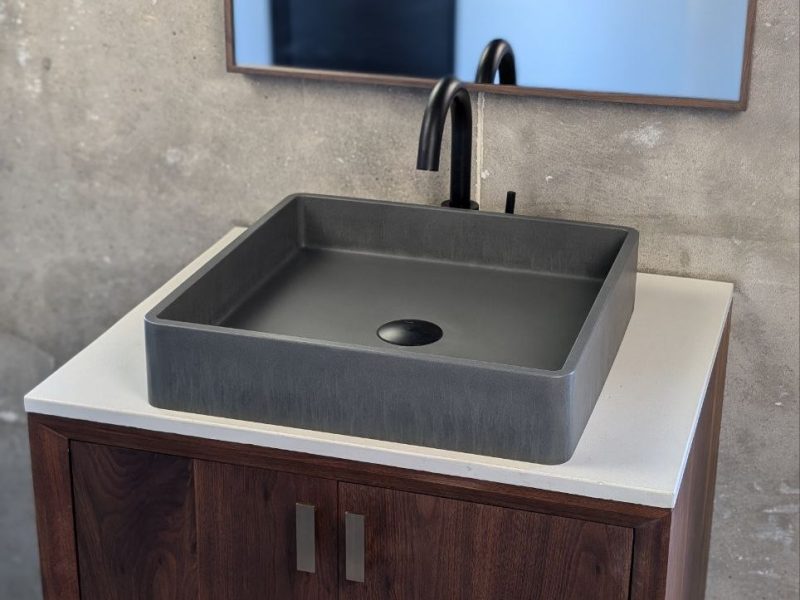
Concrete: A Resource-Efficient Choice
Concrete is one of the most widely used building materials in the world, and when sourced and produced responsibly, it can be an environmentally friendly choice. Unlike many synthetic sink materials that rely on non-renewable resources and intensive manufacturing processes, concrete can be created using abundant natural materials.
Traditional concrete is composed of cement, water, and aggregates such as sand, gravel, or crushed stone. While cement production has been criticized for its carbon footprint, modern advancements have significantly improved its sustainability. By incorporating alternative binders, supplementary cementitious materials, and innovative production methods, the environmental impact of concrete can be substantially reduced.
The Role of Recycled Aggregates
One of the key ways Crete Collective enhances the sustainability of our concrete sinks is through the use of recycled aggregates. Instead of relying solely on virgin materials, we incorporate recycled glass, reclaimed concrete, and industrial byproducts into our mixes. This approach helps divert waste from landfills and reduces the demand for new raw materials.
Recycled aggregates not only improve the sustainability of our products but also enhance their visual appeal. By integrating repurposed glass or stone fragments, our concrete sinks achieve unique textures and finishes that are impossible to replicate with synthetic materials.
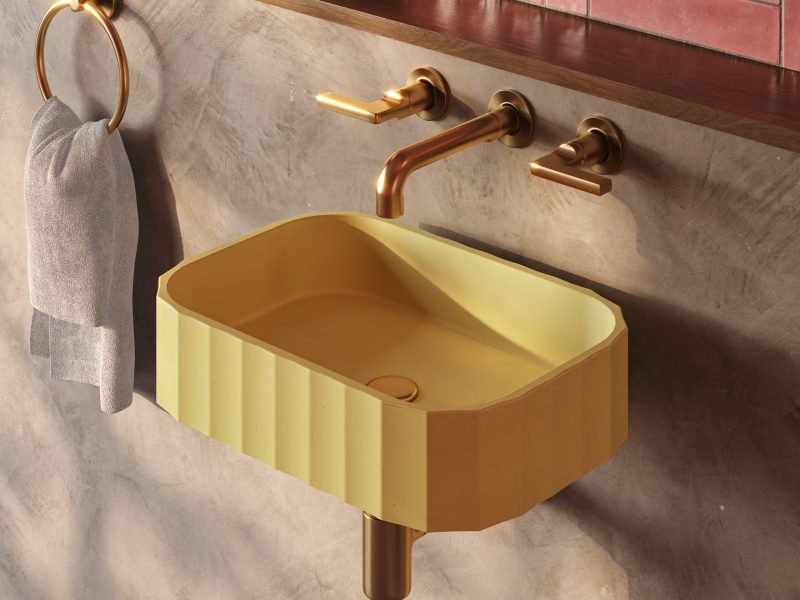
Glass Fiber Reinforced Concrete (GFRC): A Sustainable Alternative
Another major step toward sustainability is the use of Glass Fiber Reinforced Concrete (GFRC). GFRC is a specialized type of concrete that incorporates high-strength glass fibers, allowing for thinner, lighter, and more durable structures. This technology provides multiple sustainability benefits:
Reduced Material Usage: Because GFRC is significantly stronger than traditional concrete, we can create thinner sink designs while maintaining durability. This reduces the overall amount of concrete needed, lowering the carbon footprint of each product.
Lower Transportation Emissions: Lighter sinks require less fuel to transport, further minimizing the environmental impact.
Increased Longevity: GFRC’s enhanced strength and durability mean that our sinks last longer, reducing the need for replacements and minimizing waste over time.
Kodiak Pro Maker’s Mix: An Innovative Approach to Sustainability
At Crete Collective, we are always looking for ways to refine our material choices to align with sustainability goals. That’s why we utilize Kodiak Pro Maker’s Mix, a high-performance concrete mix designed to optimize strength and minimize waste. This mix enhances sustainability in several key ways:
Lower Cement Content: Maker’s Mix is engineered to require less cement while still achieving superior strength, reducing the carbon footprint associated with cement production.
Higher Performance: The increased durability of this mix ensures that our sinks remain in excellent condition for decades, reducing the need for replacements.
Versatility: This mix allows for intricate, customized designs with minimal excess material, further cutting down on waste.
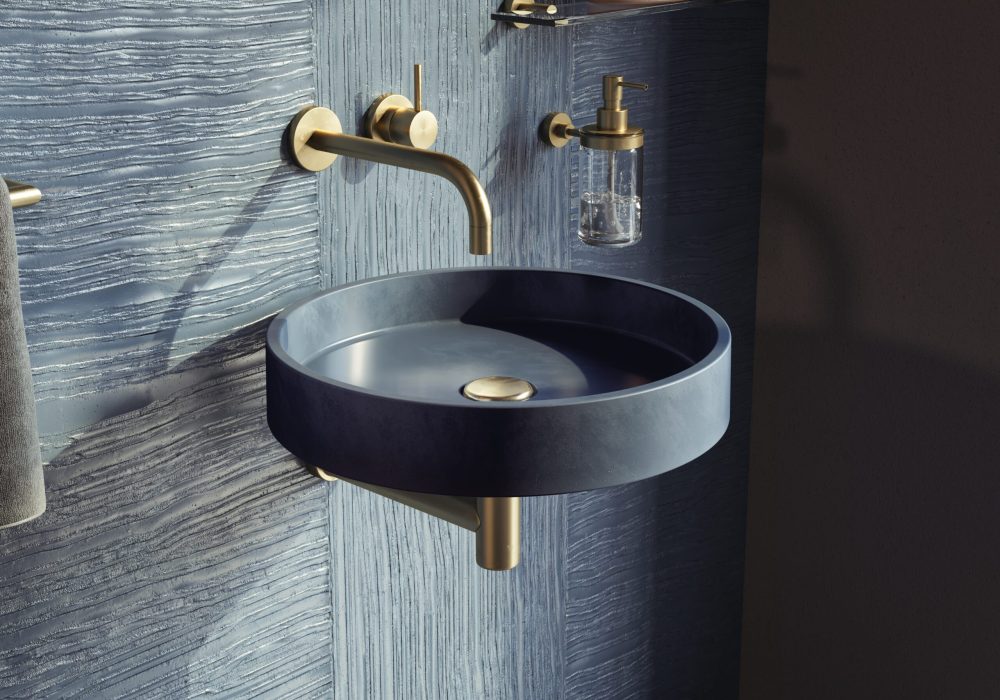
Durability and Longevity: Reducing Environmental Impact Over Time
One of the most critical aspects of sustainability is product longevity. Many sink materials, such as plastic composites or lower-quality ceramics, degrade quickly, leading to frequent replacements and increased waste. Concrete sinks, on the other hand, are incredibly durable and can last a lifetime with proper care.
A well-made concrete sink resists cracking, chipping, and general wear and tear better than many alternative materials. Additionally, if a concrete sink does sustain minor damage, it can often be repaired rather than replaced, extending its lifespan and reducing landfill waste.
Eco-Friendly Finishing and Sealing Options
Sustainability isn’t just about the raw materials—it’s also about the finishing touches. At Crete Collective, we prioritize non-toxic, low-VOC (volatile organic compound) sealers and finishes that enhance durability without compromising indoor air quality or harming the environment. Many conventional sink finishes contain harsh chemicals that release harmful emissions over time, but our eco-friendly alternatives ensure a healthier home and a reduced environmental footprint.
Aesthetic and Functional Benefits
Beyond sustainability, concrete sinks offer a range of aesthetic and functional benefits that make them an excellent choice for modern homes. Each sink is unique, with natural variations in texture and color that add character to any space. Additionally, because concrete is a highly customizable material, homeowners can select from various shapes, sizes, and finishes to achieve a one-of-a-kind look.
Concrete sinks also pair well with other sustainable design elements, such as reclaimed wood vanities, recycled metal fixtures, and water-efficient faucets, creating a cohesive and environmentally friendly bathroom or kitchen design.
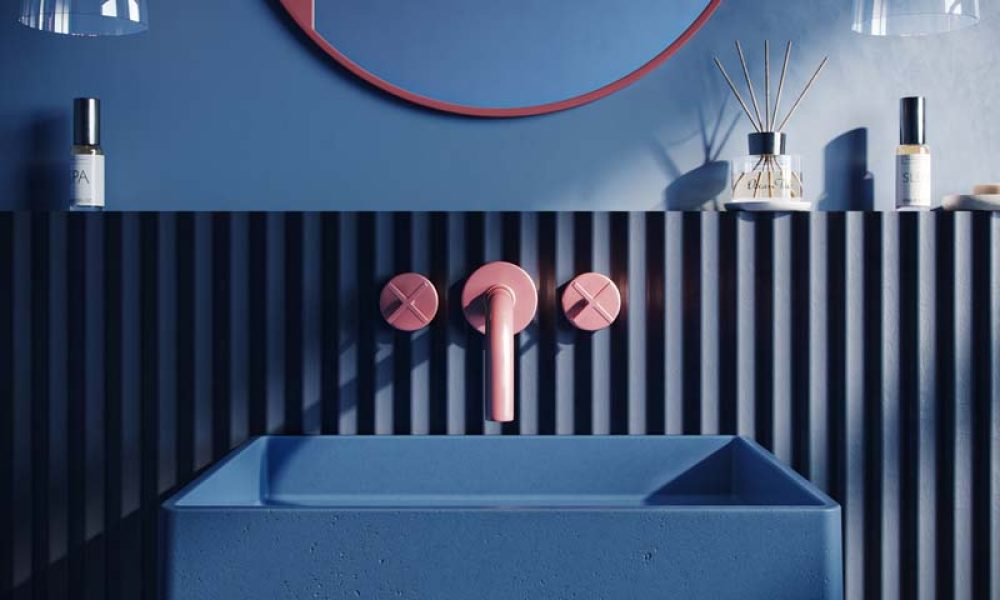
Conclusion: Making a Sustainable Choice
Choosing a concrete sink is not just about aesthetics—it’s about making an environmentally responsible decision that supports long-term sustainability. Through the use of recycled aggregates, GFRC technology, and innovative materials like Kodiak Pro Maker’s Mix, Crete Collective is committed to minimizing our ecological impact while delivering high-quality, durable, and beautiful sinks.
By opting for a concrete sink, homeowners can contribute to a more sustainable future while enjoying a unique and lasting fixture in their home. When considering eco-friendly home upgrades, concrete should be at the top of the list for those who value both style and sustainability.

